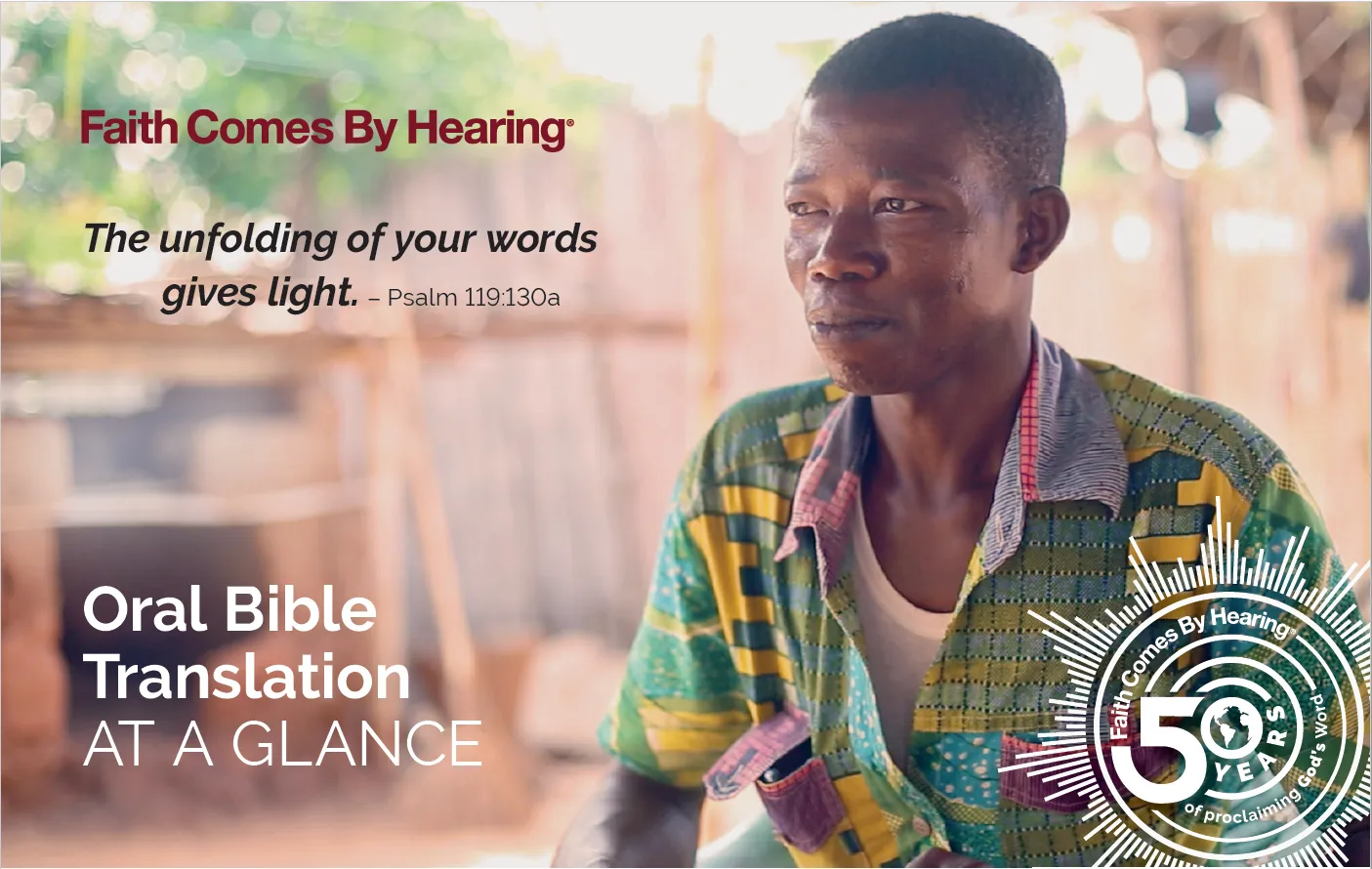
Internalizing Scripture
An estimated 1,200 oral language groups have waited for thousands of years to receive the Scriptures. Many will never obtain the written Word of God. But they can still hear the saving truth of the Gospel.
Oral Bible Translation (OBT) sidesteps the hurdle of having to read and write to translate the Bible, meaning that individuals living in unreached people groups who may never read can still hear God's Word and come to Christ. In fact, OBT is vital in achieving our Vision 2033 objectives.
Now, a team of mother-tongue translators can be trained to work among their own people to clearly and accurately render God's Word in a format they can understand and use. OBT goes through all of the same rigorous checks of a written translation—team checking, community checks, back translation, and consultant checking. And as soon as a recording is approved—whether a few verses or a whole book—it becomes available to the community. The wait is finally over!
An urgent desire to see the last people groups receive the Gospel in their heart languages continues to grow. OBT projects are in great demand, given that the methodology has been accepted by the worldwide translation community. God is graciously preparing the hearts of oral people worldwide to hear His truth and come to Him. They will be counted among those standing before Christ’s throne on the last day, just as He promised.


.webp)

.webp)
.webp)
.webp)
%20(1).webp)
